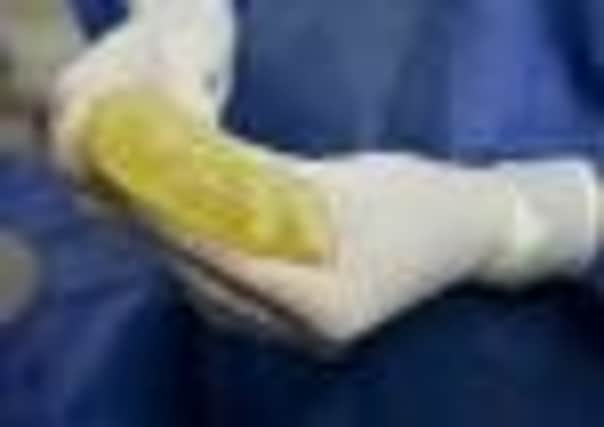Implant scandal fails to dent demand for vanity surgery


While once the sole preserve of the rich and famous, going under the knife is now mainstream. Nip, tucks and lifts have become almost as common as ear piercing and it seems nothing can persuade us otherwise.
While the tough economic times have forced many of us to cut back on foreign holidays and put off buying that new car, during the same period, the number of cosmetic procedures has steadily grown.
Advertisement
Hide AdAdvertisement
Hide AdFigures from 2011 showed the number of women having breast enlargements had risen by 6.2 per cent and while the increase was recorded before the recent French PIP (Poly Implant Prosthese) implants furore, all the evidence suggests it will have little impact.
In December, it emerged that the PIP breast implants contained industrial silicone which may be more likely to rupture and leak. Last month, the Department of Health said as many as 47,000 women in the UK may have the implants, but Stephen Hamilton, a consultant plastic surgeon and spokesman for the British Association of Aesthetic Plastic Surgeons (BAAPS), which represents 40 per cent of UK plastic surgeons, doesn’t believe it will be a deterrent.
“I think the PIP problem has scared people, but I don’t think it’s necessarily made them change their minds about having surgery,” he says. “I think it’s made them ask more about their implants, and that’s a good thing.”
With 10,003 breast implant operations performed by BAAPS members in 2011, up from 9,418 the year before, they remain the most popular form of cosmetic surgery in the UK and were nearly twice as high as blepharoplasty (eyelid surgery), which went up 4.8 per cent last year to 6,057 operations.
Advertisement
Hide AdAdvertisement
Hide AdOverall, the number of surgical procedures carried out by BAAPS members in 2011 showed a rise of 5.8 per cent from 2010, to a total of 43,069. The greatest surge was in male tummy tucks, which showed an increase of 15 per cent, while female tummy tucks increased by seven per cent.
“I wonder if some of these treatments have moved over from being an absolute luxury to being a personal treat in tough times,” says Mr Hamilton.
“Hopefully the recent problems mean there’ll be some more patient education, and some change in the regulatory framework. It’s certainly true that the current framework for regulation is pretty light-touch.While there are perfectly good surgeons in the UK who aren’t members of BAAPS, it may need plenty of research to find one.
“One of the problems is that it can be very difficult to sift through all the names and find somebody in an area that’s become so commercialised. There’s a danger in aesthetic surgery that people are just trying to sell you things. If you feel like that, you’re probably better to look for advice somewhere else.”
Advertisement
Hide AdAdvertisement
Hide AdBut the reality is that many patients will look for the cheapest option, usually on the internet, which often leads them to clinics abroad.
“If your reason for choosing a surgeon is price, it’s probably a false economy,” says Mr Hamilton.
“If you’re receiving very cheap treatment then you have to ask yourself where the savings are being made. Medical care is expensive, and the worry is that corners are being cut somewhere.
“If patients are seeing their surgeon for 10 minutes before they embark on a major surgical procedure, I don’t think that’s right. The first consultation for any procedure should take between 30 and 45 minutes, followed by a second, shorter, consultation after a cooling-off period of a few weeks.”
Advertisement
Hide AdAdvertisement
Hide AdThe Department of Health has now launched two reviews, one examining how the PIP problem was handled in the UK, and the other looking at whether the cosmetic surgery industry needs to be more effectively regulated.
This includes considering whether clinics look after the care and welfare of their patients, and the regulation of implants and fillers.
Plastic surgeon Professor Laurence Kirwan, who runs clinics in the UK and the United States and is a member of the American Society for Aesthetic Plastic Surgery, suggests that some clinics don’t offer the personalised doctor-patient relationship which is integral to practising medicine.
He warns: “Their ownership is profit, not patient-driven. As seen from the PIP fiasco, there’s an urgent need for strenuous, effective regulation of any device implanted into the human body.
“Cosmetic surgery is like any other surgery and should only be performed by properly trained surgeons. Health catastrophes, such as seen with PIP, must be avoided at all costs in the future.”